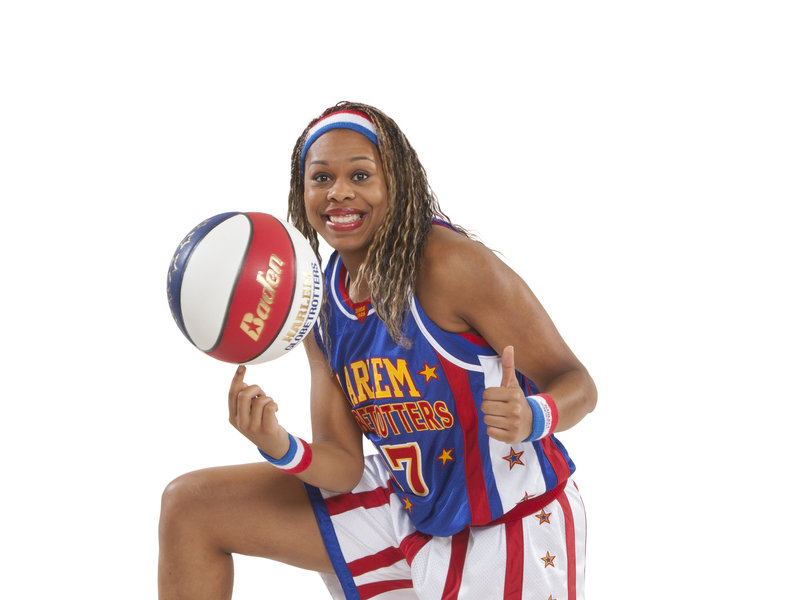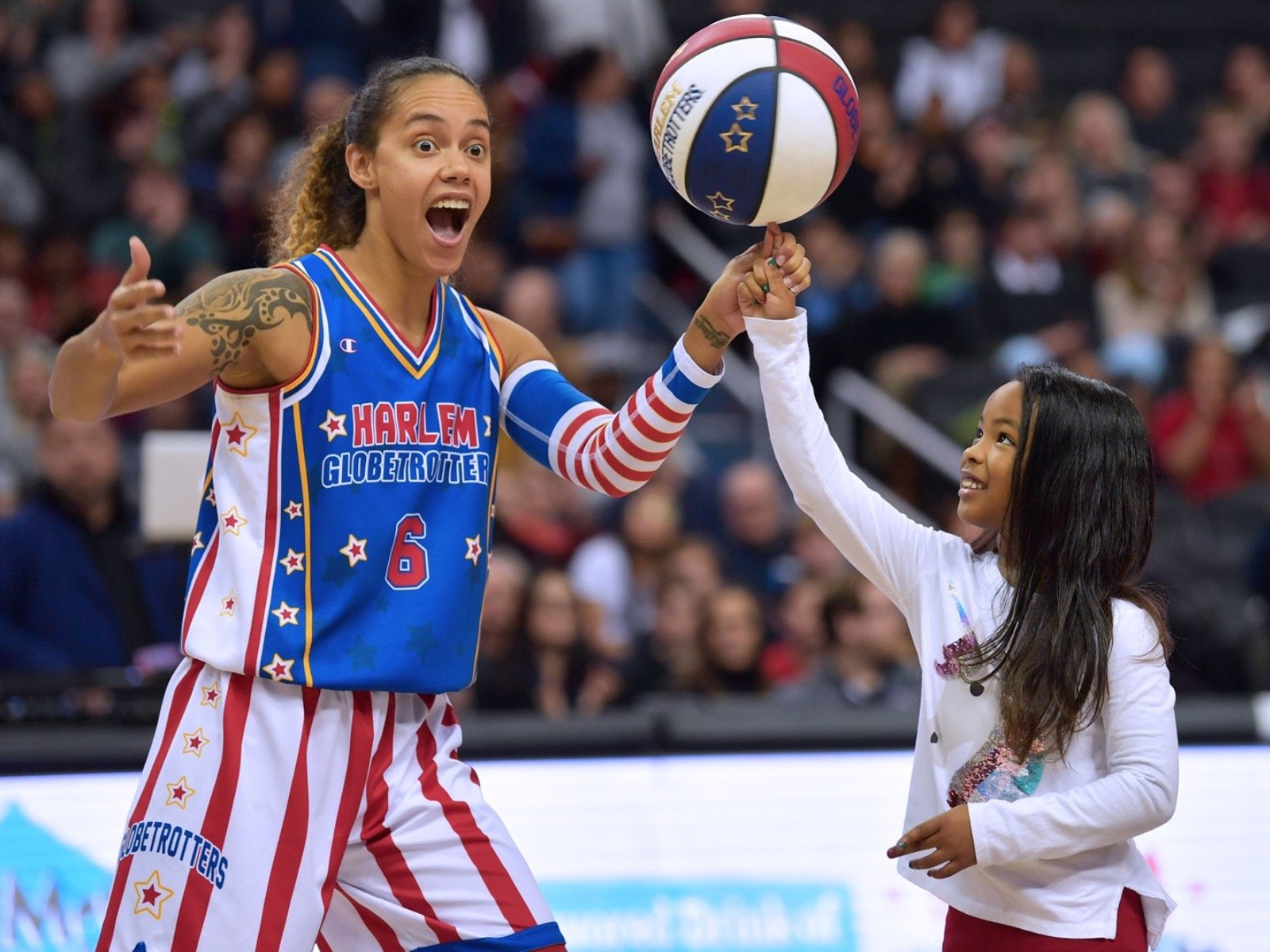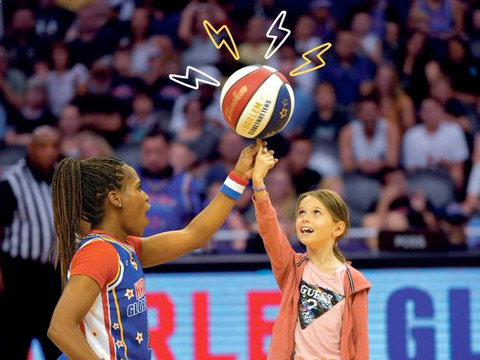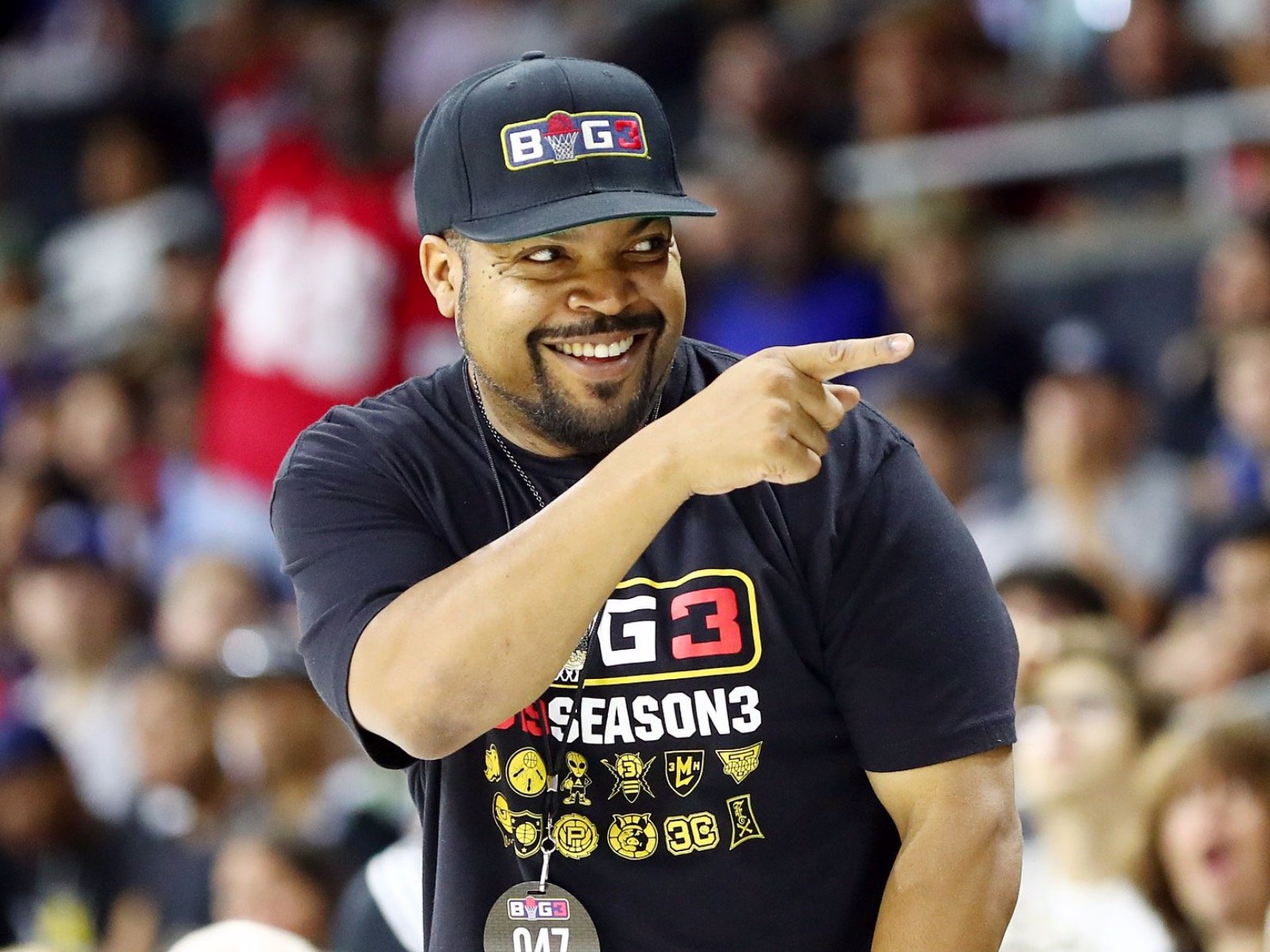When I arrived at the BMO Harris Bradley Center to interview Harlem Globetrotter Joyce "Sweet J" Ekworomadu – the 12th female player in the 89-year history of arguably the world’s most famous basketball team – in advance of their traditional New Year’s Eve game at the BC, I was asked if I wanted to play a game of horse with Sweet J. Considering I hadn’t shot a basketball since probably middle school, I couldn’t turn down the opportunity fast enough.
I was, however, able to ask some one-on-one questions with Ekworomadu, about how she became a Globetrotter, how Allen Iverson impacted her easy basketball days and if she ever feels bad about routinely pummeling the Washington Generals pretty much every night (spoiler alert: nope!).
OnMilwaukee.com: When did you first get into basketball?
Sweet J: I started playing basketball when I was 10 years old, just in the neighborhood with the other kids. I just realized it was something I loved to do. I went through school with that – went to college at Texas State University – and played in the WNBA for a short time in 2008. Then I played overseas in Italy and Poland, so basketball has taken me all around the world. Literally. And now I’m here, two years in as a Globetrotter. It’s been cool.
OMC: Who were your basketball idols growing up?
SJ: The WNBA started in 1997, so that was pretty huge, watching the Houston Comets win back-to-back championships four times with Sheryl Swoopes and Cynthia Cooper. A guy that I looked up to was Allen Iverson. I tried to emulate some of his moves, because he was an undersized guard, and he was still able to shake-and-bake anybody.
I remember distinctively watching this commercial he did with Reebok that broke down his hesitation crossover, and I was obsessed with it. That was back when AOL was your Internet provider, and it was like dial-up. I just remember looking it up and sitting there rewinding it over and over and over, just watching it and getting it down pat. That ended up being one of my patented moves that I used from high school on through college.
OMC: Do you have the same feelings on practice that Iverson did?
SJ: (laughs) We won’t discuss those feelings about practice.
OMC: When did you realize that basketball was something you could do as a profession?
SJ: Just like being young, I was outside, and I’d think to myself, "If I make this shot, I’m going to play at Duke" or "If I make this shot, I’m going to the WNBA." Before ’97, women didn’t have another place to go. So when that started, it was cool. It was one of those things where it seemed possible.
Really, the moment I realized it was when I was playing for the Nigerian national team, and our head coach was then the assistant coach for the Comets, Kevin Cook. This was back in 2007, so I was still a senior in college, and he was just like, "We’ve gotta get you playing point guard and fine tune your skills." And I’m going to listen to somebody who’s coached the best of the best.
So then I realized he saw a lot of potential in me, so I really focused on my game and working out after practices at school. Just going from playing with pros to going back to college, I saw the game a lot slower. I was able to have a good senior year, and I got the opportunity with the Silver Stars. Now, I’m with the Globetrotters, entertaining and becoming a part of history.
OMC: How did the process of making the team work? Was it an audition or a tryout?
SJ: It is different. At Texas State, I had a friend – his name was Brandon Bush – who was on the Globetrotters. I didn’t know that; I was just calling him to check up with him and say what’s up. He was like, "I’m on the Globetrotters," and I’m like, "So random." (laughs) He was saying they had females on the team, which I didn’t know that.
He told them about me, and I ended up trying out in Houston. I didn’t know what to expect, but it was just like any other basketball tryout. You’ve got to be able to play the game first and foremost. A lot of my teammates have won dunk contests or they’re all-Americans. I’ve got a teammate who was drafted by the Bulls and played with Jordan. Everyone has an extensive basketball background first and foremost. The tricks and ball handling comes a little later. But I just tried out, and they liked what they saw and offered me a position.
OMC: How long did it take to get down the moves and the entertainment side of being a Globetrotter?
SJ: Just to spin the basketball took a while. I never just thought to myself to spin the basketball, so when I became a Globetrotter, I was like, "I think I need to know how to do that." It took me about six months, practicing everyday for an hour. It becomes a feel thing. Now I can do it on the spot, but I remember getting frustrated early on, just not being able to do it and seeing little kids saying, "Look what I can do!", spinning the basketball. (laughs)
That was probably one of the hardest things to get, but everyday I’m learning from the veteran players, who do a great job of teaching us some of their skills and moves. Then you just put your own flair on it.
OMC: Do you have a particular favorite move?
SJ: Well now that I can spin the ball, I can take it around the world, dropping the ball down and spinning it around. That took me some time to get it down. I’m always fascinated by my own teammates. I’ve got a teammate named Scooter, who can spin the ball for an extensive period of time on his head and under his leg. I’m just like, "Is there a battery in your ball I don’t know about?" I’m just impressed and amazed everyday.
OMC: Do you guys talk or are you friends with the Washington Generals at all?
SJ: This year is the 2015 Revenge of the Washington Generals. We haven’t lost to them since the 1970s, so they’ve been in the lab working and are more determined than ever to try to beat us. They’re a challenging team; they’ve got to know how to play basketball too, and they have a lot of threats that we have to be conscious of. It’s going to be a thrill-seeking game.
OMC: Do you feel bad for them sometimes since they’re essentially the world’s most famous losers?
SJ: (laughs) I am a competitor so I never feel bad for the opponent. People should feel bad for us that we lost to them in the 1970s. (laughs)
OMC: What’s the best part of being a Harlem Globetrotter?
SJ: The best part is inspiring and impacting the kids. Little boys will come up to me after the game and say, "You’re my favorite player." And I’m like, "… Did you see the guy who did the behind-the-back dunk and like flipped all around on the court?" That’s pretty neat to know that I’m inspiring not only the girls, but the boys as well. I just never would’ve thought that would be something I could do, just using the sport of basketball.
As much as it is a gigantic cliché to say that one has always had a passion for film, Matt Mueller has always had a passion for film. Whether it was bringing in the latest movie reviews for his first grade show-and-tell or writing film reviews for the St. Norbert College Times as a high school student, Matt is way too obsessed with movies for his own good.
When he's not writing about the latest blockbuster or talking much too glowingly about "Piranha 3D," Matt can probably be found watching literally any sport (minus cricket) or working at - get this - a local movie theater. Or watching a movie. Yeah, he's probably watching a movie.







